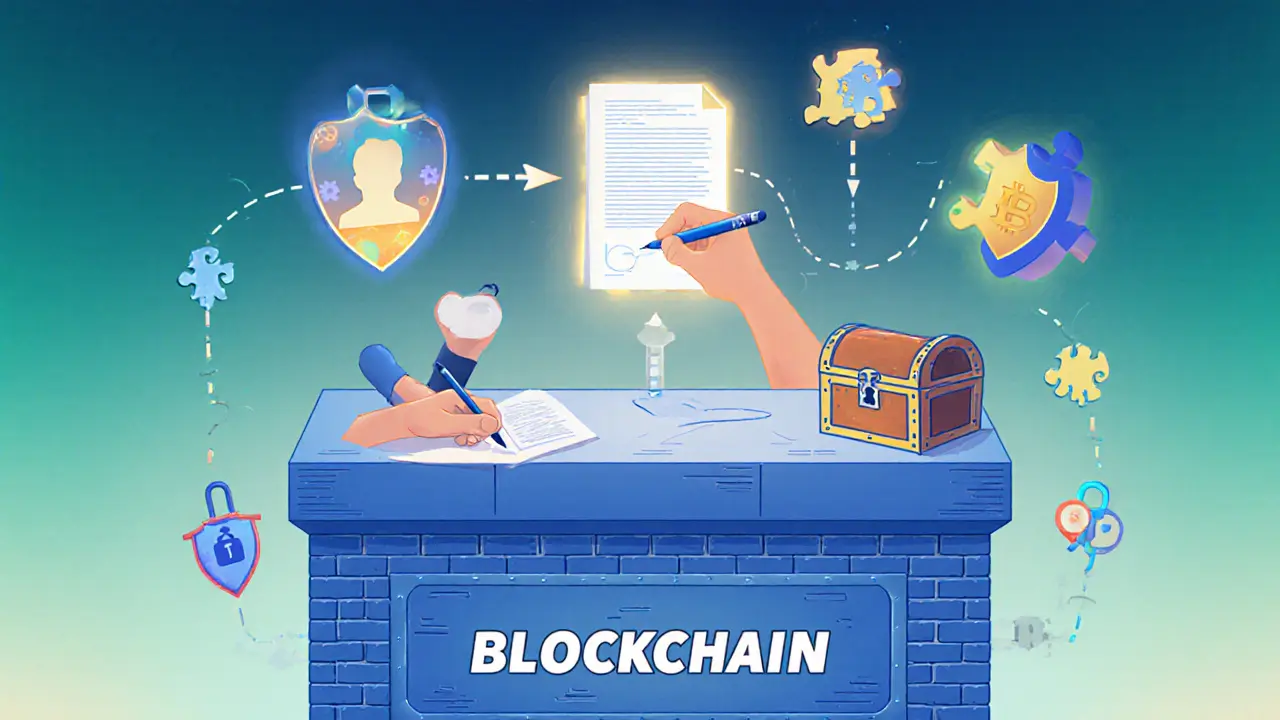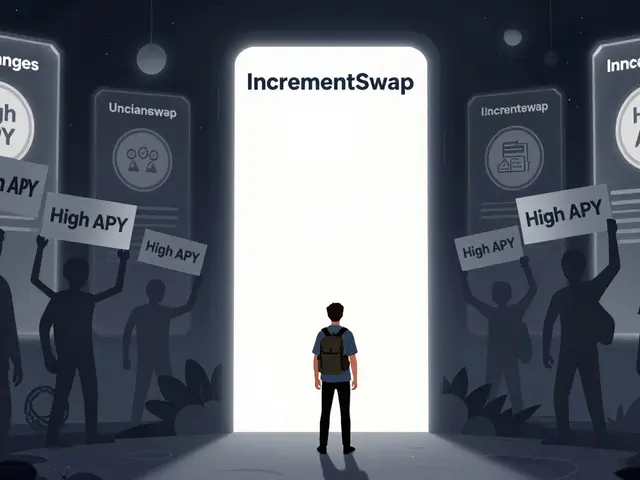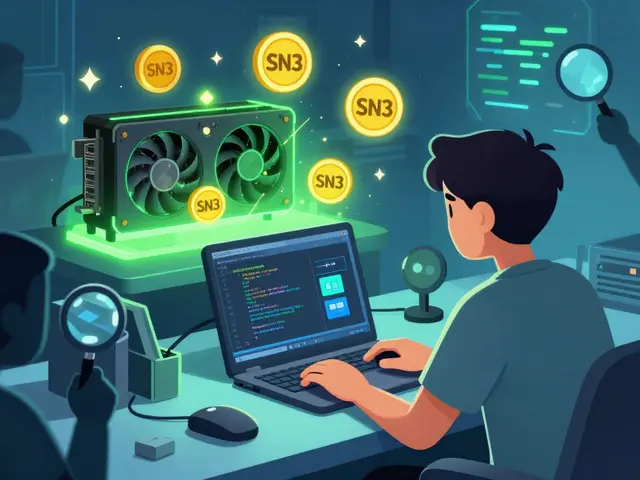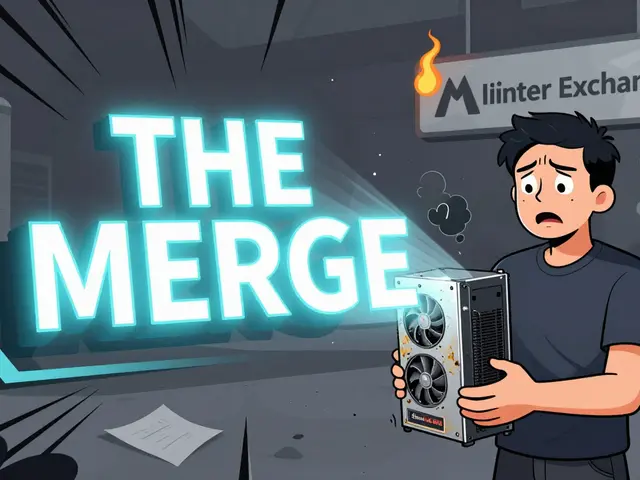Smart Contract Property Sale Calculator
Estimated Benefits of Smart Contract Property Sale
When you hear smart contracts in the context of buying a house, you might picture sci‑fi code that replaces lawyers and agents. In reality, it’s a self‑executing agreement written on a blockchain that moves ownership as soon as the buyer’s payment hits the right address. Below is a quick snapshot of what that looks like.
Key Takeaways
- Smart contracts automate property transfers, cutting costs by up to 50%.
- Closing times can shrink by about 30% thanks to instant verification.
- They create an immutable record, reducing fraud and disputes.
- Regulatory uncertainty and complex legal scenarios are still hurdles.
- Tokenization opens doors to fractional ownership and global investors.
What Is a Smart Contract in Real Estate?
Smart Contract is a digital agreement that lives on a blockchain. It contains logic statements-if‑then rules-that run automatically when conditions are met. In a property sale, the condition is usually the receipt of funds, and the action is the transfer of the title.
How the Technical Architecture Fits Together
The system is built on several interconnected pieces:
- Blockchain provides the immutable ledger where the contract lives.
- Digital Identity stores verified property details-location, size, legal description.
- Escrow functionality holds the buyer’s funds until every clause is satisfied.
- Multi‑party Digital Signatures confirm each participant’s consent at every stage.
- Encryption layers and secure key management protect the contract from tampering.
When the buyer’s payment is confirmed, the contract’s code triggers a Title Transfer event, automatically updating ownership records on the blockchain.
Benefits Over Traditional Property Sales
| Aspect | Traditional Sale | Smart Contract Sale |
|---|---|---|
| Intermediaries | Agents, escrow agents, notaries, lawyers | Automated code, minimal human hand‑off |
| Transaction Cost | 2-5% of sale price | ~1% or less (network fees only) |
| Closing Time | 30-60 days | Usually under 10 days |
| Transparency | Paper trails, limited real‑time view | Live ledger accessible to all parties |
| Security | Risk of fraud, lost documents | Cryptographic guarantees, immutable record |
The numbers come from multiple pilot projects across the U.S., Europe, and Asia that reported about a 50% cost cut and a 30% faster close.

Limitations and Legal Hurdles
Despite the upside, smart contracts aren’t a magic wand. Complex legal conditions-like contingencies tied to a buyer’s financing approval-still need human judgment. Some jurisdictions don’t yet recognize blockchain‑based signatures as legally binding, creating a gray area for enforcement.
Regulatory Frameworks are emerging, but they vary widely. In New Zealand, recent amendments to the Property Law Act allow electronic signatures, yet they stop short of declaring blockchain contracts as “official.” In the U.S., a handful of states have passed “smart contract” statutes, but they usually require a paper addendum for full enforceability.
Real‑World Use Cases Shaping the Market
- Real‑Estate Tokenization turns a building into digital shares. Investors can buy 1% of a rental property, receive proportional rent, and sell their tokens on secondary markets.
- Fractional Ownership lowers the entry barrier for first‑time homebuyers, letting multiple parties co‑own a property via a single contract.
- Automated Rentals handle rent collection, security deposits, and lease enforcement without manual bookkeeping.
One pilot in Auckland tokenized a $3million office block, issuing 10,000 tokens at $300 each. Within three months, 70% of the tokens were bought by overseas investors, and rental income was automatically distributed each month.
Step‑by‑Step Guide to Implement a Smart Contract Sale
- Define the transaction parameters: purchase price, payment schedule, contingencies, and property metadata.
- Draft the contract code using a language like Solidity (for Ethereum) or Rust (for Solana). Include fail‑safes for missed payments or title disputes.
- Conduct a legal review to ensure the clauses meet local property law.
- Deploy the contract on a public or permissioned blockchain. Record the contract address in the property’s digital identity.
- Invite all parties to attach their digital signatures via a secure wallet.
- Trigger the escrow by sending the buyer’s funds to the contract’s address.
- Once the contract verifies receipt, it automatically writes the new Title Transfer event to the ledger.
- Both buyer and seller receive a cryptographic receipt as proof of ownership.
Most firms recommend a hybrid approach at first-use a smart contract for payment and escrow, but retain a traditional deed filing for a few weeks until local authorities recognize the blockchain record.
Future Trends to Watch
Developers are adding AI‑driven verification for property inspections, meaning a smart contract could automatically reject a sale if a drone‑captured inspection report flags structural issues.
Internet‑of‑Things sensors are being linked to contracts so that rent is waived if heating fails, or insurance premiums adjust based on real‑time risk data.
Standardized cross‑border protocols are in the works, aiming to let a buyer in Singapore purchase a condo in Wellington with a single contract that complies with both countries’ regulations.
Frequently Asked Questions
Do smart contracts replace real‑estate agents?
Not entirely. They automate many back‑office tasks, but agents still provide market insight, negotiation skill, and personal service that code can’t mimic yet.
Is a blockchain‑based title legally binding?
In most places, the traditional deed must still be recorded with the land registry. However, several jurisdictions are piloting direct blockchain registration, which could make the digital record the official title.
What happens if a smart contract code has a bug?
Because contracts are immutable once deployed, a buggy contract can’t be edited. Developers usually deploy a new version and use a migration pattern, but funds may be locked until the issue is resolved. Regular security audits are critical.
Can I tokenize my home to sell a portion of it?
Yes. Tokenization platforms let you split ownership into digital shares. Buyers receive tokens that represent a claim on rental income or equity, and the smart contract handles profit distribution.
What are the main security concerns?
Key risks include private‑key theft, flawed contract logic, and network attacks. Using hardware wallets, multi‑signature setups, and third‑party audits mitigates most threats.












People Comments
Smart contracts could really speed up closings!
The very notion of embedding property deeds into immutable code feels like the next step in humanity's quest for certainty. We have always chased the illusion of trust, yet here we propose a trustless system that assures both parties. In a world where escrow can be a black box, the blockchain offers transparent arbitration. Imagine a buyer who never worries about hidden fees, and a seller who knows when the funds are irrevocably secured. It's a philosophical shift: from reliance on intermediaries to reliance on mathematical proof. This could reduce not only economic friction but also the existential dread that muddles high‑value transactions. Of course, the technology must mature, but the trajectory is unmistakable. The future of real estate might be written in code, not in ink.
Sure, sounds cool 😒 but who’s gonna actually trust a line of code with their house? I mean, the idea is neat, yet the reality feels like a sci‑fi movie.
While enthusiasm for blockchain is commendable, it is imperative to recognize the ethical implications of delegating legally binding agreements to autonomous contracts. The absence of human discretion could exacerbate inequities, particularly for parties lacking technical literacy. Therefore, a balanced approach that incorporates both technological efficiency and traditional safeguards is advisable.
Enough with the wishful thinking-if you can’t guarantee data security, you’re just handing over your home to strangers in code. That’s reckless.
Don’t let the skeptics drown your optimism-smart contracts can democratize access to real‑estate deals and cut out the middlemen.
From a transactional efficiency standpoint, leveraging decentralized ledgers introduces a paradigm shift in title transfer protocols. By automating escrow release criteria, we mitigate settlement risk and compress the standard 30‑day closing window to under ten days. Moreover, the immutable audit trail satisfies regulatory compliance without the overhead of manual reconciliations. In short, we’re talking about a suite of fintech innovations-smart contracts, tokenized assets, and on‑chain KYC-that collectively streamline the entire pipeline.
Picture this: a buyer clicks “accept,” the contract instantly verifies funds, the deed is recorded, and the seller gets paid-all in a heartbeat! It’s not sci‑fi; it’s the inevitable evolution of how we trade property.
Absolutely, the reduction in settlement timelines is a tangible benefit. By encoding the transfer logic, we eliminate manual bottlenecks that typically delay closing. Additionally, the transparency of blockchain ensures all parties can verify each step in real time, which enhances confidence throughout the process.
Nice point.
The hype around smart contracts is overblown; they’re not a silver bullet and introduce new attack vectors.
yeah the risk is real but the potential is huge
When one contemplates the alchemy of code transmuting the ancient rituals of property exchange, one cannot help but feel a surge of awe. The ledger, immutable as a mountain, records each transfer with a fidelity that eclipses parchment and ink. No longer must the buyer fear the phantom of hidden liens, for every encumbrance is etched in binary, visible to all. The seller, too, rejoices, liberated from the endless chase of escrow agents and the endless paperwork that once gnawed at their patience. This technological renaissance promises to democratize access, allowing the modest investor to partake in markets once gated by prohibitive costs. Yet, with great power comes the responsibility to safeguard against the shadows of cyber‑theft, for every line of code is a doorway, both to opportunity and to peril. Regulations must evolve, intertwining with innovation, lest the promise be shackled by outdated statutes. The symbiosis of law and tech will craft a new covenant, one where trust is codified, not presumed. In the end, the true marvel lies not merely in faster closings, but in the reimagining of ownership itself-a paradigm where the notion of ‘title’ becomes fluid, dynamic, and perpetually verifiable. As we stand on this precipice, the choice before us is clear: embrace the metamorphosis or cling to antiquated practices that no longer serve the modern world.